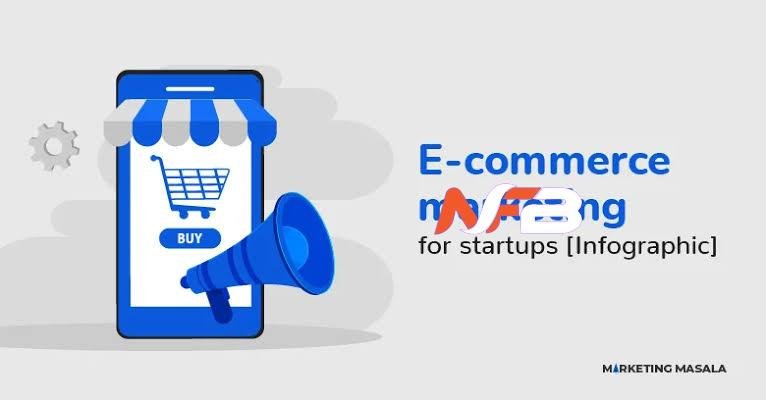The educational startup scene in the UK has been growing steadily over the last few years. As more learners and institutions turn to digital solutions, scaling an e-commerce platform becomes vital for startups in this space. Educational startups, like any other business, face unique challenges when it comes to growth. Factors such as user experience, digital marketing, and strategic partnerships play a significant role in determining how successful a company can be in the e-commerce sector. Let’s explore the most effective strategies that can help educational startups scale and make a lasting impact.
Focusing on User Experience
One of the most important strategies for educational startups is to prioritize user experience. Platforms offering educational services need to ensure that users, whether they are students, educators, or administrators, can navigate their websites easily and enjoy a seamless experience. This includes offering easy-to-use interfaces, quick load times, and interactive tools that enhance learning.
An essential part of user experience is mobile optimization. More students access educational content on their phones than ever before. In this sense, optimizing your platform for mobile users ensures that learners can access courses anytime, anywhere. Regular updates to the interface based on user feedback can also help educational startups scale efficiently.
Alex Taylor, CEO of CrownTV, says, “In my role at CrownTV, I’ve seen firsthand how integrating technology into user experiences has revolutionized the way customers engage with educational platforms. We focus heavily on personalized digital signage, which can be applied in educational contexts. By tailoring content to individual learners, you increase engagement and retention. Interactive platforms foster a two-way communication, making students more active participants in their learning journeys.”
Building Strong Digital Marketing Strategies
Another critical component for scaling is a well-executed digital marketing plan. Educational startups must clearly define their target audience and craft campaigns that speak to their specific needs. Whether through search engine optimization (SEO), social media advertising, or email campaigns, digital marketing helps startups build brand awareness and attract new customers.
Data-driven marketing strategies can significantly enhance growth. For example, analyzing user behavior on your website can inform future marketing efforts, helping tailor your messaging to suit your audience’s needs. By employing strategies such as retargeting, you can remind potential customers of your services, improving conversion rates and boosting sales.
Echo Zhao, the co-founder of Lansbox, shares her experience: “We saw tremendous growth after fine-tuning our marketing strategies at Lansbox. By combining our knowledge of the educational space with precise targeting techniques, we created campaigns that genuinely connected with our audience. One major success was using interactive quizzes in our email campaigns to engage educators. By offering value upfront, we nurtured relationships that later converted into sales.”
Leveraging Partnerships and Collaborations
Educational startups can benefit greatly from partnerships with established institutions, influencers, or complementary companies. These collaborations can take the form of co-branded courses, shared resources, or even joint marketing efforts. Such partnerships allow startups to tap into new audiences and enhance their credibility within the educational sector.
Additionally, partnering with institutions like schools, universities, and other educational organizations helps startups to validate their platform’s effectiveness. It provides access to invaluable feedback, which can then be used to improve the product and better serve the market. By working closely with industry leaders, educational startups can leverage their expertise and resources to scale more effectively.
Kevin Garce, the founder of iwoolfelt, emphasizes this approach: “At iwoolfelt, we focus on collaborating with institutions that understand the value of our platform. When we partnered with local schools, it opened doors to new opportunities and gave us critical insights into what learners and educators need most. It’s not just about selling a product but about building trust within the educational community. This helped us refine our services, and as a result, our customer base expanded.”
Offering Flexible Payment Options
Lastly, educational startups should consider offering flexible payment options to meet the diverse needs of their customers. In a field where learners come from various backgrounds and financial situations, the ability to pay in installments or access financial aid could make a significant difference in attracting and retaining users. Subscription-based models, for instance, allow customers to access content on an ongoing basis without upfront financial strain.
These flexible payment options can also drive long-term customer loyalty. When learners feel they are getting value from their investment, they are more likely to stay engaged with the platform and recommend it to others. Ensuring that financial options are clearly communicated and easy to navigate further enhances the user experience and can contribute to the overall success of the business.
Conclusion
Scaling an educational startup in the UK’s competitive e-commerce space requires a multi-faceted approach. From prioritizing user experience and crafting robust digital marketing strategies to leveraging partnerships and offering flexible payment options, these strategies create a strong foundation for growth. Educational startups that focus on these aspects are more likely to thrive and make a lasting impact on learners.
Experts such as Alex Taylor, Echo Zhao, and Kevin Garce have shown that with the right strategies in place, educational startups can navigate challenges and scale effectively. Their insights underscore the importance of integrating innovative technology, building meaningful connections, and responding to market needs. By following these strategies, educational startups can position themselves for long-term success in the e-commerce industry.















Leave a Reply